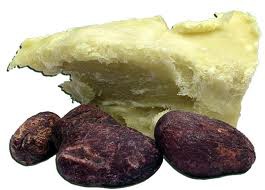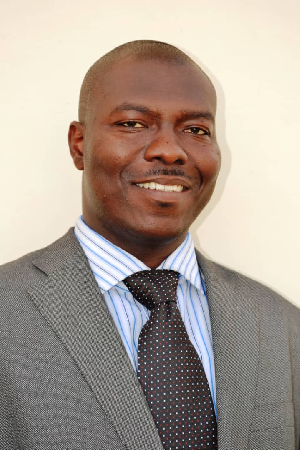Business News of Friday, 10 October 2014
Source: www.vsointernational.org
Report: Turning butter into gold in Ghana

"Northern Ghana is rich in natural resources but there aren't many employment opportunities here. This means that many people still live in poverty here. Business can really make a difference to change people's lives"
"Women in Ghana have been harvesting shea nuts for butter for hundreds of years but as much as 52% of the shea harvest can go to waste every year as many of the tress are too far away. There's no incentive for the women to travel to collect them. They have just a few people who are prepared to pay the fair price. The prices of shea nuts don't support complex investment to improve collection."
So says Senyo Kpelly, social entrepreneur and CEO of SeKaf Ghana Ltd in Tamale, Ghana established in 2003. A known expert in the shea industry, he's also known as one of its greatest innovators.
Senyo has found new and better ways of increasing the yield of butter to nuts through research at the SeKaf shea butter village. In the Kasalgu Women's Cooperative Senyo worked with the women to test different boiling times for the nuts and tried out varying the amounts of water used in the process. His findings have led to best practice methods now adopted by the entire industry.
In 2010 he launched 'TAMA' (meaning shea fruit in the local Dagbanli language), a range of natural shea butter cosmetics.
Shea nuts as 'women's gold'
African women have been collecting and processing the nuts into butter for hundreds of years. Known as 'women's gold,' shea has enormous potential economic benefits. According studies in the industry (Global Shea Alliance) more than four million rural women in West Africa make an income from shea. Traditionally, shea has always been a women's crop and is an industry dominated by women.
However, the total potential shea harvest can go to waste as there's often no incentive for women to collect the nuts. They lack the connections ability and resources to find a market for their produce.
A business to solve social problems
Senyo sees his shea business as solution to this problem:
" Business and commerce are important tools to solve these problems. Resources belong to the community. We are managing it on behalf of the community and want to manage in a more responsible way so that unborn children can benefit from it ".
"Ghana is a haven of business as we are blessed with natural resources such as gold, iron, crude oil and lots of agricultural raw materials. We also have an affordable labour market. We are increasingly importing technology and expertise to transform these natural raw materials into finished products that meet international standards and this creates industries that provide much needed jobs."
The TAMA range of soaps, creams and oils is made by blending the organic shea butter processed by the local women's cooperative with natural ingredients such essential oils and local herbs.
By creating quality, professionally packaged shea butter natural cosmetics, SeKaf Ghana is helping to provide a guaranteed income to the women. It now buys organic shea nuts and butter from women's groups in over 18 different communities, benefitting at least 1700 women as well as their families and communities. The company's office and factory also provide jobs for local community members.
"My philosophy is what has made me a social entrepreneur"
"I personally believe that every human being should have a good philosophy that promotes integrity, truth and love. I believe businesses are custodians of community resources and they must manage these resources for a mutual benefit."
Senyo set up his first business as a student at the Institute of Professional Studies in the capital, Accra : flavoured popcorn. A successful business, he later donated it to the operator to support his part time education.
Highly motivated to start his own business after graduating, he founded SeKaf Ghana Ltd with his childhood friend and classmate Michael Kafui Bulla. He moved to Tamale to develop his business "in the shade of the shea trees themselves" where he still lives with his wife and two daughters.
Innovative skill sharing through volunteering
SeKaf wanted to build TAMA as a successful African brand and needed a specialist marketer but lacked the resources to hire one. They approached Voluntary Service Overseas (VSO) for help.
An international development organisation that fights poverty through volunteers, VSO agreed to send Stephanie Green, a British volunteer to support the company in sales and marketing.
Stephanie has also been coaching management and working directly with the women's groups to help them establish village savings and loans schemes to give them better financial stability.
The future for Ghanaian business
Senyo sees a bright future for Ghanaian business:
"As a Ghanaian businessman aspiring to build an international African brand I have a deep sense of satisfaction and lots of hope in the future of African business environment."
As well as being sold in Ghana, TAMA is exported to Saudi Arabia, Vietnam, Sudan, Burkina Faso, Kenya and Nigeria and has attracted new customers from North America and Europe.










